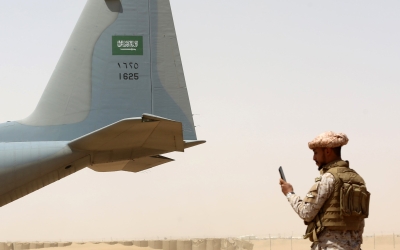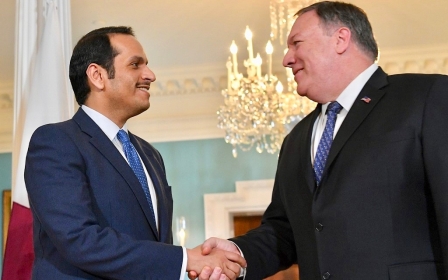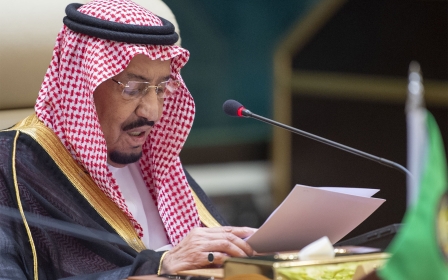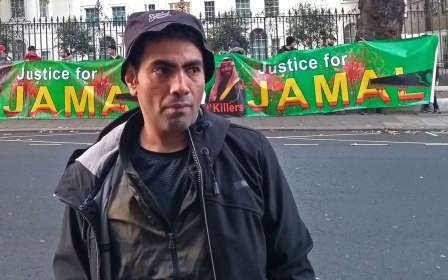US approved transfer of nuclear expertise to Riyadh after Khashoggi murder
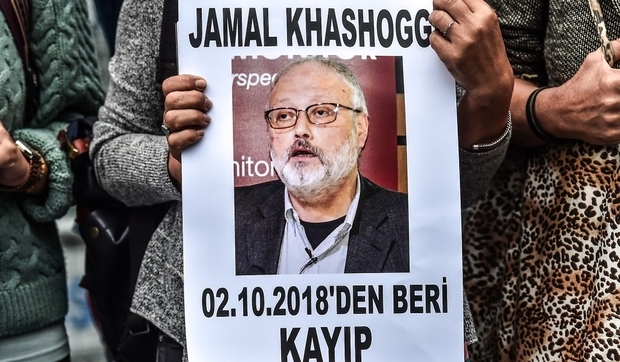
The Donald Trump administration issued two authorisations for the transfer of technical "nuclear expertise" to Saudi Arabia after the murder of journalist Jamal Khashoggi late last year, US Senator Tim Kaine has revealed.
Kaine, a Democrat from Virginia, where Khashoggi resided, called the decision "shocking" - as it came amid global outrage over the Saudi journalist's gruesome murder on 2 October.
The two approvals were issued on 18 October - only 16 days after Khashoggi was killed - and on 18 February, respectively.
Known as "Part 810 authorisations", they allow US companies to discuss and work on nuclear-related projects in the Gulf kingdom.
"I have serious questions about whether any decisions on nuclear transfers were made based on the Trump family's financial ties rather than the interests of the American people," Kaine said in a statement on Tuesday.
New MEE newsletter: Jerusalem Dispatch
Sign up to get the latest insights and analysis on Israel-Palestine, alongside Turkey Unpacked and other MEE newsletters
The senator said the Energy Department provided the recent details in response to queries by his office and other members of the Senate Committee on Foreign Relations.
A Department of Energy official confirmed to Middle East Eye late on Tuesday that two authorisations were issued after 2 October to enable US companies to "compete in the international civil nuclear market".
However, the official added that the approvals do not allow the transfer of "nuclear material, equipment or components".
"The process involves a thorough interagency review that requires the Department of Energy to secure the concurrence of the Department of State, and consult with the Departments of Defense and Commerce, and the Nuclear Regulatory Commission," the official said in an email.
Lawmakers from both major parties introduced legislation in April to require US Secretary of Energy Rick Perry to report to Congress about the transfer of nuclear technology to foreign nations.
During a congressional hearing earlier this year, Kaine also personally grilled Perry over when the nuclear transfers to Saudi Arabia were approved.
Perry said at the time that he did not know the specific dates of the approvals.
The Energy Department has also kept the companies involved in the sharing of nuclear technology information with Saudi Arabia confidential, citing the need to protect business interests, Reuters reported.
'Fuelling a dangerous escalation'
Khashoggi, a Washington Post columnist and critic of the government in Riyadh, was killed by Saudi agents inside the country's consulate in Istanbul last autumn.
His death led to unprecedented criticism of Riyadh in Congress.
Last December, every single US senator voted in favour of a resolution stating that Saudi Crown Prince Mohammed bin Salman was responsible for the crime, a conclusion that was also reached by the CIA.
Still, Trump has continued to stand by his Saudi allies.
The White House missed a deadline mandated by the Global Magnitsky Act, a human rights law, to determine the perpetrators of Khashoggi's murder.
The US president also vetoed a bill to halt US support for the Saudi-led war in Yemen, and last month, the Trump administration bypassed Congress to push through a weapons sale to the Gulf kingdom.
The authorisations for the transfer of nuclear information to Saudi Arabia come amid growing concerns about the possibility of an atomic arms race in the Middle East.
Earlier this year, bin Salman told CBS News that his country would "without a doubt" try to acquire a nuclear weapon if Iran develops one.
"President Trump's eagerness to give the Saudis anything they want, over bipartisan congressional objection, harms American national security interests," Kaine said in his statement on Tuesday.
It is also "one of many steps the administration is taking that is fuelling a dangerous escalation of tension in the region", he said.
Middle East Eye delivers independent and unrivalled coverage and analysis of the Middle East, North Africa and beyond. To learn more about republishing this content and the associated fees, please fill out this form. More about MEE can be found here.


